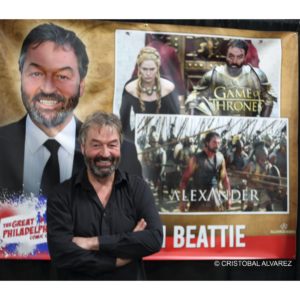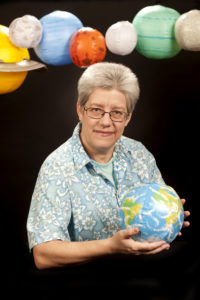Comic book editing and writing – Bob Greenberger interview – Far Point 2018
Bob Greenberger has been a writer and editor for decades. He’s worked on the Star Trek comic and as both a DC and Marvel executive he’s worked on numerous comic book projects. His latest work is a Captain America novel. I interviewed Bob Greenberger at Far Point 2018.
1:52 – Bob talks about his latest work, an original Captain America novel. He always wanted to write a Captain America novel. His first ideas were too political for the editors so he moved the story to Europe. He worked as the editor of the Star Trek comic book and he’s written a lot of Star Trek stories.
3:34 – For deadline work, he likes to finish before the deadline and put it side for a week and then look it over again. He does noodle over his own characters.
6:08 – His most experimental works were Suicide Squad which was unique for DC at the time. His other experimental project was with Peter David called the Atlantis Chronicles. He brought in a Spanish artist who had a whole new look. It just got collected after 30 years. DC was experimental and they went for it.
8:58 – The Hacker Files was a little ahead of its time. It was about software and hackers and conspiracies. The project was backburnered and then the project kind of disappeared over time.
10:56 – He doesn’t consider himself an experimental writer. He’s more of a nuts and bolts kind of guy.
11:32 – Bob goes over how he would create a novel like his latest Captain America novel.
13:36 – He balances narration, dialogue and such through practice. He knows Captain America’s voice but had to take more time on characters he created.
16:32 – For his Star Trek work he studies as much astronomy as needed. However, for Sherlock Holmes he went down rabbit holes as he studied Victorian London.
19:32 – Bob discusses what he learned being a journalist in college. That informed everything he did afterwards. The value of a schedule and allocating time.
22:02 – The editor’s role is to protect property. He also likes using entertainment to educate.
24:52 – He listens to soundtracks to set the mood while writing.
26:02 – He has a robotics club in school where he teaches. But not everyone’s imagination is captured by robotics. A school should find something to interest every kid. He’d like kids to be more curious about the tools that they use.
28:29 – All kids need to know how to write and communicate to do well in science. They also have to understand the history of knowledge.
29:43 – He always wanted a Green lantern power ring as a kid.
30:52 – He has an author’s page on Amazon. He also has a webpage, bobgreenbeger.com, his twitter handle is bobgreenberger and he’s on facebook.
Links of interest
For more “Creating Sci-Fi and Fantasy – An Inside Look” please follow me on Facebook at crisalvarezwlc, on youtube at Cris Alvarez and on Instagram @crisalvarezscifi
Guests: Bob Greenberger
Host: Cris Alvarez
Tags: science fiction, star trek, comics, atlantis, suicide squad, DC comics, marvel comics, author, captain america, peter david, science, education, STEM

 Dr. Inge Heyer has been involved with astronomy for over 30 years as a researcher and educator. She spoke to me at Far Point 2018 about what it takes to teach astronomy. (Photo provided by Dr. Heyer)
Dr. Inge Heyer has been involved with astronomy for over 30 years as a researcher and educator. She spoke to me at Far Point 2018 about what it takes to teach astronomy. (Photo provided by Dr. Heyer)